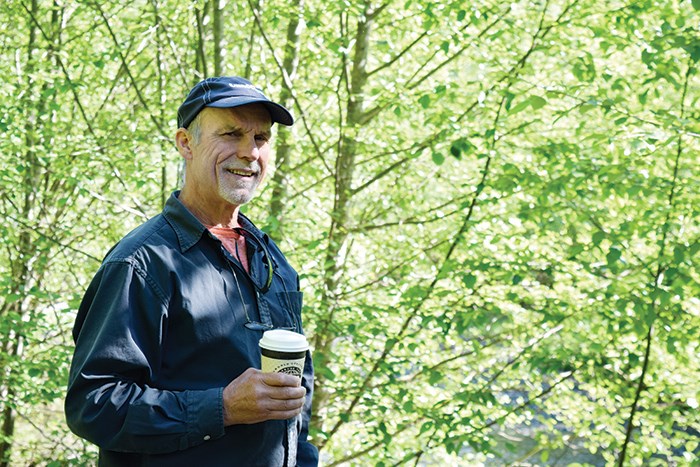Today, more than ever before, camping as a climber in 麻豆社国产has become a major issue.聽
In decades gone by, camping was a simple, quiet afterthought that happened after your climbing day ended. It also stood as a way to connect with the climbing community here, greeting people around a campfire, sharing the day鈥檚 adventures, and swapping beta about routes climbed and yet to climb.聽
Many of the world鈥檚 most iconic climbing areas have camping areas that have been partner to the growth of the activity and the fame and lore of the area. Think of Yosemite with its Camp Four. 麻豆社国产needs something like this.聽
The year was 1994. I rolled into Psych Ledge Campground in my parent鈥檚 faux-wood panelled station wagon.聽
There were no gates, no tent spots, no rules. The forest floor was a mix of tree debris, moss, ferns and broken glass and the community meeting places were big smoky campfires around which boasting, bragging, tall tales and rants were the norm.聽
There were misfits, mongrels, maniacs and more than a few who lived there full time under rotting tarp structures surrounded by their worldly possessions. They dove in dumpsters for food and brewed their own spirits from otherworldly ingredients, to be passed around at the soggy campfires mentioned above; social lube for the strange and awkward crew assembled in that forest.聽
There were parties, police visits and even scary times when roving bands of local youth enacted vigilante retribution upon the community of camped climbers. Too much fun and adventure along with too little work was being done not to draw envious eyes.聽
Decades have rolled by and climbing has slowly continued to grow as an activity, healthy beyond words, frustrating beyond belief for many people. Gyms have increased its acceptability and germinated a workout mentality, which often outstrips its more mental and adventurous past.聽
Now 麻豆社国产grows a frilly poncho adorned with tricked out vans, Sprinters, Promasters, Eurovans, RVs, jalopies, tents and sleeping bags thrown into the dust, with sleeping dirt crusted eyes beneath every spring, and keeps it until late into the wet fall.聽
The municipality is maxed dealing with the influx, BC Parks is drowning under the weight of increasing numbers and residents are getting frustrated by the poor choices being made by these folk, travelling and staying in ever increasing numbers. What do we do? Who do we call?
We, for a start, could listen to local handyman, carpenter, construction jack-of-all-trades, founder and secretary treasurer of MRAS (Mamquam River Access Society, a federally registered charity), co-founder of the 麻豆社国产Trails Society and PLEA youth justice worker John Harvey about his dream to build a new, low cost campground in Squamish.聽
Harvey has worked with youth entangled in the justice system for years, applying his practical skill set with a one-on-one relationship where he and a youth tackle local public service construction projects and trail work. He provides the know-how and leadership, the youth help with the labour and Harvey鈥檚 learn-while-doing teaching style does the rest.聽
The youths gain confidence, pride and new skills thanks to Harvey, and Squamish鈥檚 parks and trails gain stairs, bike racks, bridges and more. This new project is an amalgamation of Harvey鈥檚 climber-ly sensitivities recognizing a need for better, cheaper camping for visiting climbers and his job engaging troubled youth in skills related projects at the local level.聽
Under Harvey鈥檚 direction, MRAS applied for a licence of occupation for a 7.5-acre parcel of industrially-zoned land across from the gravel quarry on Centennial Way, just east of Brennan Park Recreation Centre. 聽
Recently re-zoned for recreational use, MRAS is now in the process of raising money to build the not-for-profit campground that will feature fifty $15 a night campsites, which will have fire pits, picnic tables and will be able to accommodate around six people per site.聽
Once built, MRAS is aiming for all revenue to be turned back into the campground infrastructure and upkeep. The site will require about $130,000 total to remediate the land and build the bare bones campground. MRAS has applied for the Canada 150 Infrastructure grant for $50,000, which has been matched through generous in-kind donations and cash contributions.聽
They鈥檙e now beginning their search for the final $50,000 needed for this campground to come to fruition and any donations are greatly appreciated. Check out their website at www.mamquamrivercampground.ca and their Facebook page for more information, news and how to donate.聽




